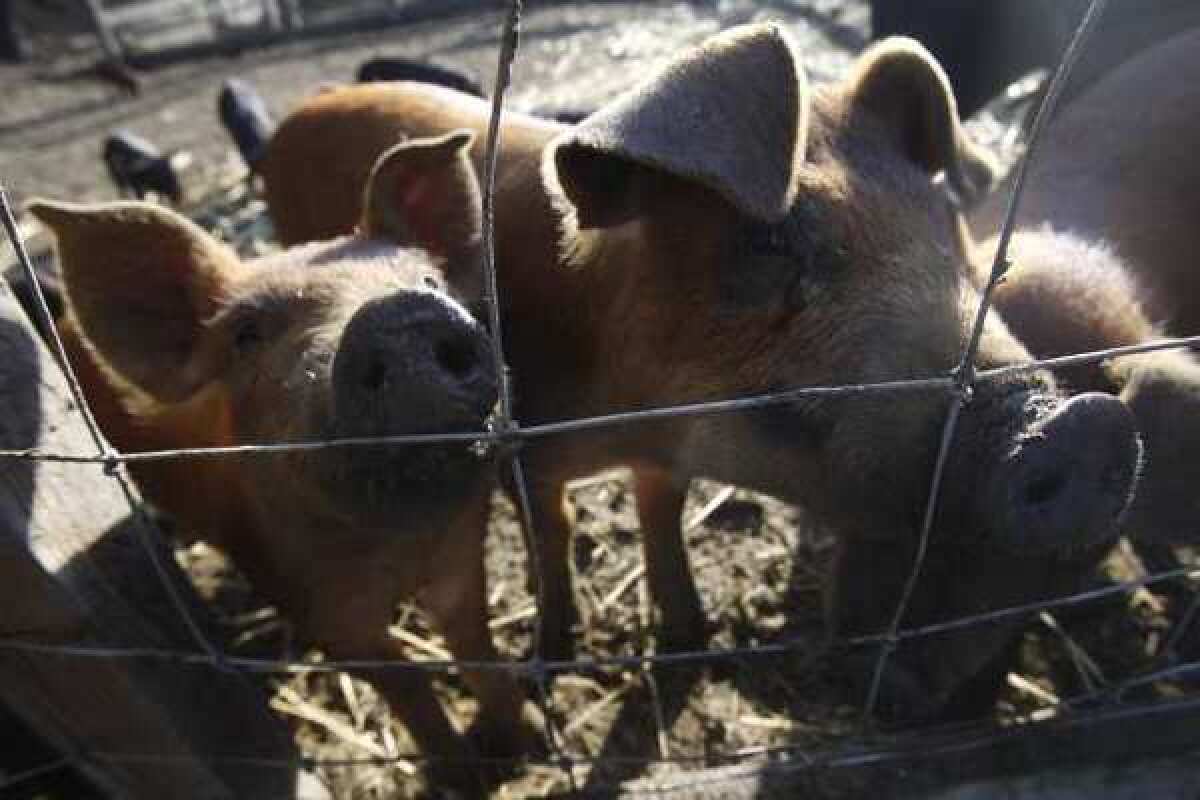Beware that pig, CDC says, as 12 more catch swine flu

- Share via
The U.S. Centers for Disease Control has words of caution for people planning to attend a local fair this summer: Watch out for sick pigs, which could be infected with the H3N2 swine influenza virus.
On Friday, the health agency reported 12 new cases of human infection with a variant of the virus, which until now had been detected in just 17 Americans since July 2011. One case was in Hawaii, another was in Indiana and the remaining 10 came from Ohio. The Indiana and Ohio cases were associated with attendence at fairs, “where reportedly ill swine were present,” the CDC said.
Most of the 29 human cases of H3N2 over the last year have been typical bouts of the flu, marked by fever, coughing, sneezing and aches. Three people, all with high risk for complications from the flu, have required hospitalization. All infected people recovered.
People can catch flu from pigs the same way they catch flu from other people: by breathing in virus-containing droplets expelled into the air by a sick pig’s cough or sneeze, or by touching a surface that has the virus on it and then touching their own mouth or nose.
This particular strain of H3N2 flu contains a gene from the 2009 H1N1 pandemic swine flu virus, which sickened millions around the world. According to the CDC report, the presence of the gene may mean that this H3N2 variant passes more easily from pig to person, or from person to person, than other strains.
The CDC advised Americans attending fairs to stay away from pigs with fever, depression, coughing or barking, discharge from the nose or eyes, sneezing, breathing difficulties, eye redness or inflammation. Pigs who go off their feed may also have the flu.
But some pigs with flu, they added, will not show symptoms. So to be safe, people should wash hands frequently with soap and running water after exposure to animals and avoid eating in animal areas, the CDC said. Those at high risk for complications — including children younger than 5, adults 65 or older, pregnant women and people with asthma, diabetes, heart disease and weakened immune systems — were urged to “consider avoiding exposure to pigs and swine barns this summer, especially if sick pigs have been identified.”
So far, there have been no H3N2 influenza cases reported in California, where petting zoos at weekend farmers markets and at the Los Angeles County Fair are big draws this time of year. But the U.S. Department of Agriculture has reported cases of the strain circulating in pigs in many states, which means the virus could be circulating widely in swine across the country, the CDC warned.
More to Read
Sign up for Essential California
The most important California stories and recommendations in your inbox every morning.
You may occasionally receive promotional content from the Los Angeles Times.











